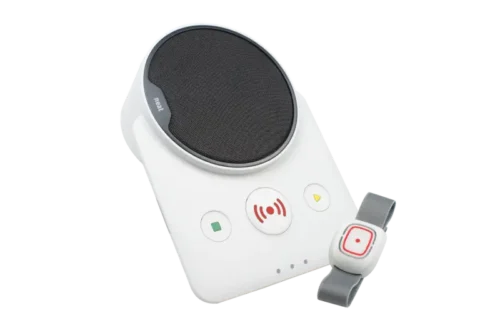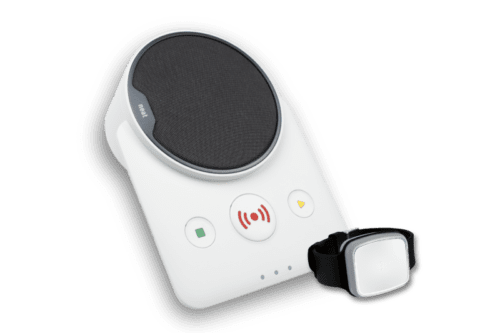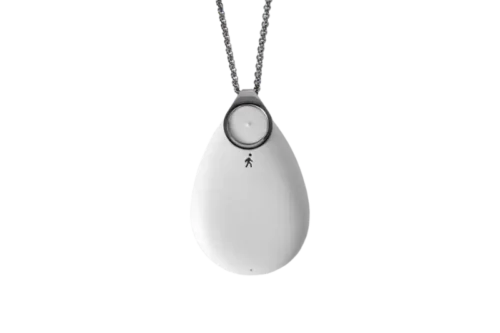
For the elderly, falls are extremely common, but they have a significant impact on a person’s health and well-being. The consequences of unintentional injury include fractures of the hip, spine, ribs, and wrists, often requiring prolonged hospitalisation. The complications of these injuries and their treatments, surgery, for example—can have even more serious consequences and even result in loss of life.
5 Ways to Prevent Falls
With increasing age, the risk of serious complications increases dramatically, but the good news is that there are ways to prevent falls. Here are our top five tips:
1. Stay clutter-free
Remove any unnecessary clutter, particularly from the floor. This includes any trailing wires, doorstops, magazines, newspapers, and bags. Make sure all rugs and mats are non-slip and have no frayed edges. Have them tacked down to the floor if necessary.
Immediately mop up any spillages should they occur, and never walk around in socks, stockings, or slippers. Wear low-heeled shoes with a good grip, and avoid climbing and stretching, which can seriously challenge your balance. Ask for help to do things that are difficult or at all risky.
2. Request your doctor’s help
Ensure that you have good foot care so that your nails are properly trimmed and no corns, calluses, or hard skin can cause pain or a limp. Very importantly, make sure that any medicines you are taking are assessed at least once every year. Many tablets for blood pressure or heart conditions, for example, can cause side effects such as dizziness or fainting, particularly on rising from a chair or getting out of the bath.
Mention any symptoms such as these to your doctor. Your GP can also organise a home hazard assessment, which will be carried out by a healthcare professional. They might advise, for example, that rails are put up on both sides of any stairs or that bars or seats are installed in the bathroom, where a walk-in shower might be more practical than a bath.
3. Make sure you can see
A regular sight test is important because conditions such as glaucoma, macular degeneration, and cataracts are common in the elderly and can develop insidiously. These can lead to visual distortion and reduced peripheral vision, making it harder to see objects in your path. Good lighting is essential in all rooms, but especially on the staircase.
4. Work on your strength and balance
It is never too late to improve these things. This can be achieved through simple activities such as walking or dancing and, if necessary, specialist training. Many community centres and local gyms offer such training for the elderly.
Tai chi is an excellent activity that improves balance, coordination, and movement. Being free from any rapid movements of the body, it is ideally suited to older people.
5. Enjoy the reassurance and peace of mind granted by a Telecare 24 personal alarm
This personal alarm system enables someone to stay safe at home and summons help automatically and very quickly in the event of someone falling. The fall sensor package senses the fall and automatically alerts a professionally run Telecare 24 call centre, enabling any previously nominated family member, neighbour, caregiver, or helper to be notified.
It merely involves wearing a water-resistant wireless pendant on the wrist as a bracelet, and the system operates 24 hours a day, 365 days a year. Its range is an extensive 100 metres, allowing someone to use it both inside the home and outside in the garden. It’s also a fantastic way to prevent falls.
As it happens, this is exactly how my own mother, now 90, uses it, whether she is outside lovingly tending to her garden or inside her first-floor flat attempting to do things that, despite my best advice, she rarely wishes to wait for my help with. I know that, in reality, that is important to her for her independence and pride. You can see me interview my mum about her fall on YouTube here.
But it makes me even more grateful for the benefits of the Telecare24 alarm system, which thoroughly reassures me that a reliable protection system is in place, and I am now advising all my patients to consider one where it is appropriate. I am sure the relatives and close family members of an elderly person would also be very interested in finding out more, and I would certainly recommend that they do.
I appreciate you taking the time to read this. Visit Telecare24 blog for more information that is similar. Thank you!





